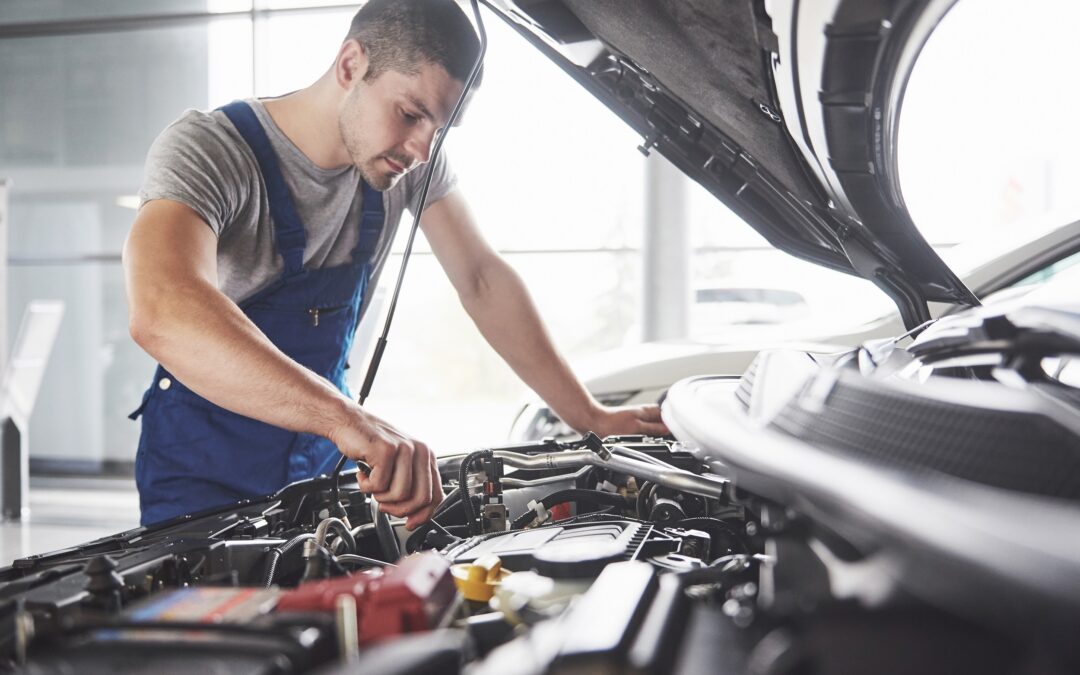Maintaining your car regularly is vital to ensure its durability and efficient performance. Ignoring these regular tasks can cause expensive repairs and reduce your car’s lifespan. The great news is that you don’t need to be an expert mechanic to keep your vehicle in excellent condition. In this article, we’ll share some simple maintenance tips that can assist you in maintaining your car’s long-term performance.
1. Regular Engine Oil Changes
Your car’s engine requires engine oil to function properly and smoothly. It lubricates parts, cuts down on friction, and prevents overheating. Skipping oil changes can harm your engine and lead to expensive fixes. Follow the manufacturer’s recommendation for routine oil changes, typically after every 3,000 to 5,000 miles. This simple measure significantly extends your car’s lifespan.
2. Check and Replace Filters
Air and oil filters are vital for your car’s performance. As time passes, they accumulate dirt and debris, which hampers engine efficiency. Replace them every 12,000 miles or as advised by your vehicle’s manual. This straightforward maintenance task ensures optimal air intake and clean oil circulation, keeping your engine safe.
3. Inspect Tires and Maintain Proper Pressure
Tires that are properly inflated increase safety as well as fuel efficiency. Check tire pressure monthly and inflate them to the recommended level stated in your car’s manual. Regularly inspect for signs of wear and tear, like uneven tread or bulges. Rotate your tires every 6,000-8,000 miles to ensure even wear and extend their lifespan.
4. Brake Maintenance
Brakes are a critical safety component. Regular inspection and maintenance are essential. Replace brake pads every 25,000-50,000 miles, depending on driving conditions and manufacturer recommendations. Keep an eye on brake fluid levels and ensure there are no leaks. Properly functioning brakes not only keep you safe but also prevent costly repairs in the long run.
5. Fluid Checks
Your car relies on various fluids for optimal performance. Regularly check and top up essential fluids like coolant, transmission fluid, and power steering fluid. Additionally, inspect for any leaks that may indicate a more significant issue. Adhering to a routine fluid maintenance schedule, typically every 3,000 to 7,500 miles, ensures your car operates efficiently.
6. Battery Care
A well-maintained battery is essential for starting up your automobile consistently. Look for corrosion on the battery terminals, and clean them if required. Test the battery’s voltage regularly and replace it every 3-5 years, depending on its type. This simple maintenance step ensures you’re never left stranded due to a dead battery.
7. Address Warning Lights
Modern cars are equipped with sophisticated onboard computers that monitor various systems and display warning lights when issues arise. When a warning light appears on your dashboard, it’s essential not to ignore it. Take your car to a qualified mechanic to diagnose and address the problem promptly. Ignoring warning lights can lead to more significant and expensive issues.
8. Alignment and Suspension Checks
Proper wheel alignment and suspension maintenance are essential for even tire wear and a smooth ride. Schedule alignment checks every 10,000-12,000 miles or as needed. If you notice your car pulling to one side or experiencing a rough ride, have the suspension inspected and repaired promptly to prevent further damage.
9. Regularly Clean and Replace Air Conditioning Filters
Clean and functioning air conditioning filters ensure you stay comfortable during the hot summer months. Replace or clean cabin air filters every 12,000 miles or as specified in your car’s manual. This not only maintains a pleasant cabin environment but also ensures your air conditioning system works efficiently.
10. Inspect Belts and Hoses
Your car’s functionality depends heavily on the belts and hoses. Regularly check them for wear, cracking, or fraying. Replace belts every 30,000-60,000 miles, and hoses as needed. Neglecting this maintenance can lead to engine overheating or other significant issues.
11. Transmission Service
Regular transmission service can extend the life of this critical component. Change the transmission fluid and filter as recommended in your vehicle’s manual, typically every 30,000-60,000 miles. This helps maintain smooth shifting and prevents transmission damage.
12. Inspect and Maintain the Exhaust System
An exhaust leak can lead to decreased fuel efficiency and even carbon monoxide exposure. Have your exhaust system inspected annually, and promptly address any issues like rust or damage. Proper maintenance keeps your car running efficiently and safely.
13. Follow the Manufacturer’s Maintenance Schedule
Every vehicle comes with a manufacturer’s recommended maintenance schedule. This guide outlines specific tasks and their recommended intervals. Following this schedule is vital for maintaining your car’s optimal condition.
Cathy Sink Agency provides custom auto insurance solutions in Fort Myers, FL. We take your driving habits into account, ensuring you have the right coverage with manageable deductibles.
Our comprehensive seasonal car insurance not only offers financial security but can also lead to substantial fuel savings. Our experienced agents will diligently explore the finest auto insurance options, considering your driving record and vehicle type.
When you choose our seasonal car insurance in Fort Myers, you can drive with the confidence of being well-protected on the road!
Also read about Differences between Car Insurance and Motorcycle Insurance.

